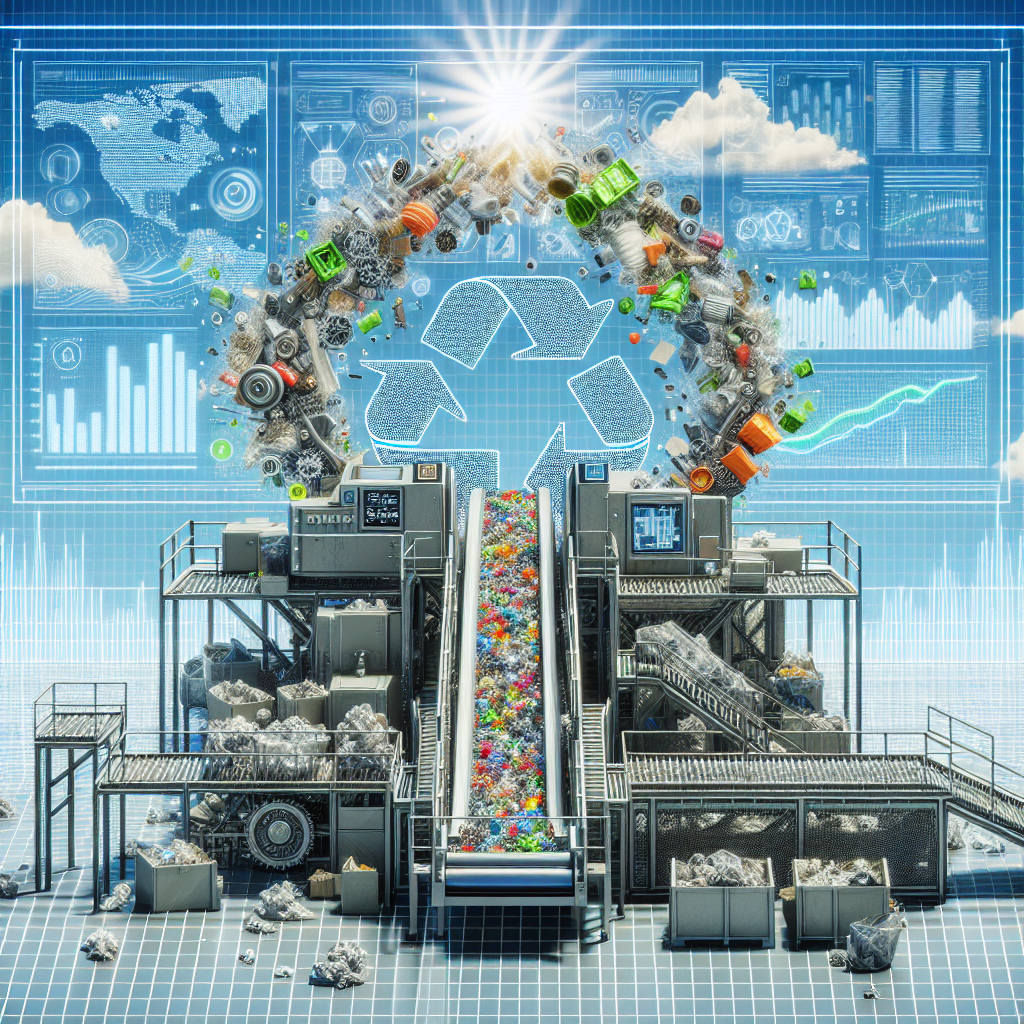In recent years, artificial intelligence (AI) has been increasingly used in various industries to improve efficiency, accuracy, and sustainability. One of the areas where AI is making a significant impact is in sustainable waste recycling. By leveraging AI technologies, recycling facilities and waste management companies are able to optimize their operations, increase recycling rates, and reduce the environmental impact of waste disposal. In this article, we will explore the various applications of AI in sustainable waste recycling and how they are helping to create a more sustainable future.
AI Applications in Waste Sorting
One of the key challenges in waste recycling is the sorting of different types of materials. Traditionally, this process has been done manually, which is time-consuming and prone to errors. AI-powered sorting systems are now being used to automate this process and improve efficiency. These systems use machine learning algorithms to analyze images of waste materials and classify them into different categories such as paper, plastic, metal, and glass. By accurately sorting materials, recycling facilities can increase the quality of their output and reduce contamination, leading to higher recycling rates.
AI Applications in Waste Collection
Another important aspect of waste recycling is the collection and transportation of waste materials. AI technologies are being used to optimize waste collection routes, improve fleet management, and reduce fuel consumption. By analyzing data such as waste generation rates, traffic patterns, and weather conditions, AI algorithms can generate more efficient collection schedules and routes. This not only reduces the carbon footprint of waste collection but also saves time and resources for waste management companies.
AI Applications in Waste Processing
Once waste materials are collected and sorted, they need to be processed into reusable materials. AI technologies are being used to optimize the recycling processes and improve the quality of recycled materials. For example, AI-powered robots can be used to disassemble electronic waste and extract valuable components for recycling. AI algorithms can also be used to monitor and control the temperature, pressure, and other parameters in recycling processes to ensure optimal efficiency and quality.
AI Applications in Waste Monitoring
Monitoring the waste generated in communities and industries is essential for effective waste management and recycling. AI technologies are being used to analyze data from sensors, cameras, and other sources to track waste generation, composition, and disposal patterns. This data can be used to identify trends, predict future waste generation, and optimize waste management strategies. By leveraging AI for waste monitoring, cities and companies can make informed decisions to improve recycling rates and reduce waste generation.
FAQs
Q: How is AI improving waste recycling rates?
A: AI technologies are being used to automate waste sorting, optimize waste collection routes, improve recycling processes, and monitor waste generation. By increasing efficiency and accuracy in these areas, AI is helping to improve recycling rates and reduce waste sent to landfills.
Q: What are the benefits of using AI in sustainable waste recycling?
A: The benefits of using AI in sustainable waste recycling include increased efficiency, reduced costs, improved quality of recycled materials, reduced environmental impact, and enhanced data-driven decision-making.
Q: Are AI-powered recycling systems cost-effective?
A: While the initial investment in AI-powered recycling systems may be higher, the long-term benefits such as increased efficiency, reduced labor costs, and improved recycling rates often outweigh the upfront costs. Additionally, the environmental benefits of using AI in waste recycling can create long-term value for communities and industries.
Q: How can companies and municipalities implement AI in waste recycling?
A: Companies and municipalities can implement AI in waste recycling by partnering with technology providers, investing in AI-powered recycling systems, and training employees to use AI technologies effectively. It is also important to collaborate with stakeholders and regulators to ensure that AI solutions comply with environmental and safety standards.
In conclusion, AI applications in sustainable waste recycling are revolutionizing the waste management industry and helping to create a more sustainable future. By leveraging AI technologies for waste sorting, collection, processing, and monitoring, recycling facilities and waste management companies can improve efficiency, increase recycling rates, and reduce the environmental impact of waste disposal. As AI continues to evolve and become more advanced, we can expect to see even greater innovations in sustainable waste recycling that will benefit communities, industries, and the planet as a whole.

